School Immunisers HPV Vaccination Resources
School Immunisers HPV Vaccination Resources
Confidently deliver HPV vaccination with knowledge and tools for school immunisers
These resources provide practical tools to address key concerns, manage vaccine hesitancy, and communicate clear, evidence-based information to pupils and their carers – making it easier for you to get on with your job.
Essential facts to address vaccine hesitancy
This resource equips school immunisation teams with essential knowledge about HPV, the benefits of vaccination for young people, and the vital role of school-based programmes in protecting future health. It explains how HPV immunisation can help prevent certain HPV related cancers and diseases.

What is Human Papillomavirus (HPV)?
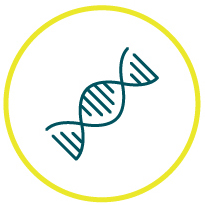
Human papillomavirus (HPV) is a double-stranded DNA virus that infects the skin and mucosae of the upper respiratory and anogenital tracts1
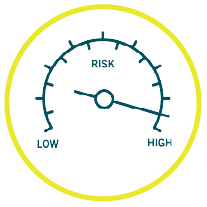
HPV viruses are classified as either ‘high-risk’ or ‘low-risk’ types, depending on their association with the development of HPV-related cancers1
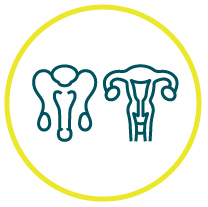
There are around 100 types of HPV, of which ~40 infect the genital tract1

HPV is associated with certain cancers, including of the cervix, vulva, vagina, and anus1,2
Who can be affected by HPV?
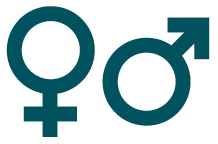
HPV poses risks to both men and women1

4 out of 5 sexually active individuals may become infected with at least one type of HPV at some point in their lives3
For most people, HPV clears on its own.
But for those who don’t clear the virus, it can cause certain cancers and diseases1.
What are the risks of HPV?

A minority of persistent infections with high-risk HPV types will eventually lead to certain HPV-related cancers, however, these infections may lay dormant for 20 years or more2
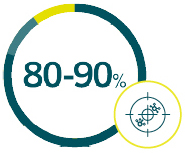
of all anal cancers are associated with HPV infection, with HPV16 and HPV18 accounting for the majority of anal cancers1
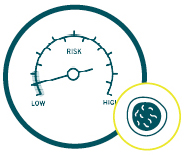
Low-risk HPV types can lead to
genital warts, which is the most
commonly diagnosed viral sexually
transmitted infection in the UK2
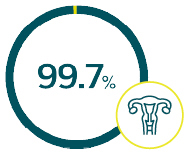
of cervical cancer cases are caused by persistent infection with high-risk HPV types4

HPV16 and HPV18 account for almost 80% of all invasive cervical cancers in the UK5
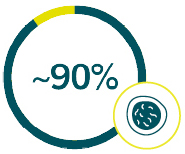
of all genital warts are caused by HPV6 and HPV111
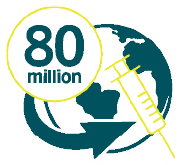
More than 80 million people have been vaccinated against HPV worldwide since 20086

Over 10 million doses of HPV vaccines have been given in the UK in over 10 years6
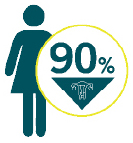
Cervical cancer rates have been reduced by almost 90% in women in their 20s who were offered the HPV vaccination at age 12 and 13 years in England, when compared with an unvaccinated population7*
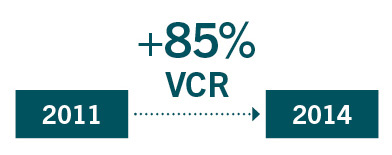
Between 2011 and 2014, the national uptake of HPV vaccination in England for girls aged 12–13 years was consistently >85%, with over 40% of Primary Care Trusts in England achieving at least 90%8
*An observational study in England estimated the relative risk of cervical cancer in vaccinated cohorts compared with earlier cohorts who were not eligible for HPV vaccination. Data from a population-based cancer registry were extracted on Jan 26, 2021, and were assessed for diagnoses of cervical cancer and CIN3 from Jan 1, 2006 to June 30, 2019 in women aged 20-64 years. 13.7 million-years of follow up data were used. The study estimated that cervical cancer rates have been reduced by 87% in women aged 20 years to younger than 30 years who were offered HPV vaccination between 12 and 13 years of age, compared with an unvaccinated population7
HPV vaccination: Why is there still an unmet need?

HPV vaccine uptake in the UK declined since the start of the SARS-CoV-2 pandemic in early 2020 due in part to school closures9
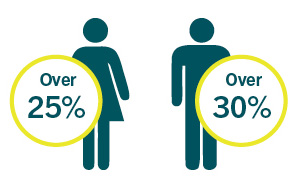
In England during 2024, over 25% of girls and over 30% of boys aged 13–14 years in year 9 have not received their HPV vaccine9
HPV vaccine first dose uptake rates in Year 8 pupils aged 12–13 years in England:9
2020–2021
76.6% of girls
71.0% of boys9
2021–2022
69.6% of girls
62.4% of boys99
2022–2023
71.3% of girls
65.2% of boys9
2023–2024
72.9% of girls
67.7% of boys9
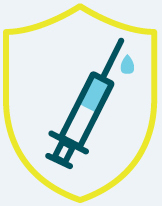
Vaccination can protect against certain HPV related cancers and diseases
Through your efforts in ensuring eligible young people receive HPV vaccination, YOU are:
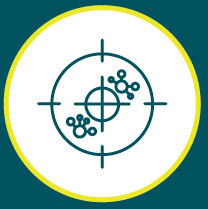
Protecting boys and girls from certain HPV-related cancers and genital warts in the community and nationally1,10
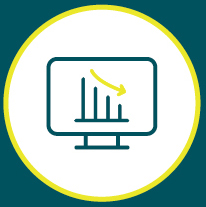
Reducing the burden on NHS resource and costs, by preventing certain HPV-related cancers11,12

Helping save the lives of around 850 women per year13

School and primary care nurses have an important role in educating young people about HPV and offering HPV vaccination to eligible people14,15
Early protection with HPV vaccination in young boys and girls can prevent them from getting certain HPV-related cancers later in life10,13
Without prevention and screening, women may face more intensive diagnostics, treatment, emotional stress, and health risks16

- UK Health Security Agency. Human Papillomavirus (HPV): the green book, chapter 18a. June 2023. Available at: https://www.gov.uk/government/publications/human-papillomavirus-hpv-the-green-book-chapter-18a. Last accessed: October 2025.
-
National Cancer Institute. HPV and Cancer. April 2023. Available at: https://www.cancer.gov/about-cancer/causes-prevention/
risk/infectious-agents/hpv-and-cancer. Last accessed: October 2025. - Cheeson HW, et al. Sex Transm Dis. 2014;4(11):660–4.
- Okunade KS. J Obstet Gynaecol. 2020;40:602–8. 5. The Catalan Institute of Oncology and the International Agency for Research on Cancer Information Centre on HPV and Cancer. United Kingdom Human Papillomavirus and Related Cancers, Fact Sheet 2023. March 2023. Available at: https://hpvcentre.net/statistics/reports/GBR_FS.pdf. Last accessed: October 2025.
- The Catalan Institute of Oncology and the International Agency for Re-search on Cancer Information Centre on HPV and Cancer. United Kingdom Human Papillomavirus and Related Cancers, Fact Sheet 2023. March 2023. Available at: https://hpvcentre.net/statistics/reports/GBR_FS.pdf. Last accessed: November 2025.
- UK Health Security Agency. Information on HPV vaccination: Available at: https://www.gov.uk/government/publications/hpv-vaccine-vaccination-guide-leaflet/information-on-the-hpv-vaccination-from-september-2023. Last accessed: October 2025
- Falcaro M, et al. Lancet. 2021; 389:2084–2092.
- Public Health England. Human papillomavirus (HPV) immunisation programme review: 2008 to 2014. March 2015. Available at: https://www.gov.uk/government/publications/human-papillomavirus-hpv-immunisation-programme-review-2008-to-2014. Last accessed: October 2025.
-
UKHSA Human papillomavirus (HPV) vaccination coverage in adolescents in England: 2023 to 2024. Human papillomavirus (HPV) vaccination coverage in adolescents in England: 2023 to 2024 – Available at:
https://www.gov.uk/government/statistics/human-papillomavirus-hpv-vaccine-coverage-estimates-in-england-2023-to-2024/human-papillomavirus-hpv-vaccination-coverage-in-adolescents-in-england-2023-to-2024. Last accessed: October 2025. - UK Health Security Agency. Press Release: Concern over drop in HPV vaccine coverage among secondary school pupils. January 2023. Available at: https://www.gov.uk/government/news/concern-over-drop-in-hpv-vaccine-coverage-among-secondary-school-pupils. Last accessed: October 2025.
- Jit et al. BMJ. 2008; 337:a769.
- Fabiano et al. Eur J Health Econ. 2023; 24:75–80.
-
UK Health Security Agency. Ten years on since the start of the HPV vaccine programme – what impact is it having? July 2018. Available at:
https://ukhsa.blog.gov.uk/2018/06/18/ten-years-on-since-the-start-of-the-hpv-vaccine-programme-what-impact-is-it-having/. Last accessed: October 2025. - Hilton et al. BMC Infectious Diseases. 2011; 11:226.
- Boyce et al. PLOS ONE. 2012; 7(9):e43416.
- NHS England and Department of Health and Social Care (2025). Cervical screening care pathway. GOV.UK. Available at: https://www.gov.uk/government/publications/cervical-screening-care-pathway/cervical-screening-care-pathway. Accessed November 2025.
Guiding conversations around HPV vaccination
This section contains the discussion guide which helps guide conversations around HPV vaccination with members of the public.

A guide for healthcare professionals to support discussions with members of the public around HPV vaccination.
This resource has been fully funded and developed by MSD for UK healthcare professionals only.
GARDASIL® 9 is indicated for active immunisation of individuals from the age of 9 years against the following HPV diseases1:
- Premalignant lesions and cancers affecting the cervix, vulva, vagina and anus caused by vaccine HPV types
- Genital warts (Condyloma acuminata) caused by specific HPV types
MSD does not recommend the use of any of its products outside any of the terms of its marketing authorisation indications.
Always refer to the Summary of Product Characteristics before prescribing to help minimise the risks associated with the use of GARDASIL® 91.
*HPV = Human Papillomavirus
This guide provides examples of what hesitation may sound like along with information to address the needs of the individual. The discussion points included are a guide only to aid conversations with members of the public. Please use the information provided at your clinical discretion.
Your opinion is valued when it comes to HPV vaccination
Recommending HPV vaccination to parents – especially those who are hesitant – can help them consider protecting their children against certain HPV-related cancers and diseases in later life2
For parents wanting to learn more, help ensure they have the right information when making the decision to vaccinate their child3

Share why you support and recommend HPV vaccination, use personal experience, and assess what additional questions remain from parents3
Your opinion is valued when it comes to HPV vaccination
Some parents may end the call when they hear you are phoning on behalf of the local School Age Immunisation Service, so to build trust, consider leading the conversation with the child’s name and their school.
It is important to listen with empathy and acknowledge how they are feeling, so perhaps say to the parent “I understand that decisions about vaccinations can be overwhelming. If you have any questions or concerns about HPV vaccination, I am happy to provide information and support”.
How to effectively address potential questions from parents
Recommending HPV vaccination to parents – especially those who are hesitant – can help them consider protecting their children against certain HPV-related cancers and diseases in later life2
Parent says:
“I want to re-gain control over what vaccines my child receives.”
Response:
Ask for permission to discuss HPV vaccination and reassure the parent that it is their decision whether to consent to vaccination or not. Offer them the chance to discuss any questions or concerns they may have, before making their decision.
Parent says:
“Why is HPV vaccination relevant to my child at this age when they are not sexually active?”
Response:
HPV is a common virus that can be passed via skin-to-skin contact, not just through sex4.
Vaccination against HPV is most effective when given before exposure to HPV5, so it is first offered to 12- and 13-year-olds as part of the NHS National Immunisation Programme6.
They may be young now, but later in life, your child could be at risk of developing certain cancers caused by HPV. For most people, HPV clears on its own. But for those who don’t clear the virus, it can lead to certain HPV-related cancers and diseases over time6.
Parent says:
“How common is HPV-related cancer, and is it really a cause for concern?”
Response:
Each year in the UK, there are 3,256 new cases of cervical cancer7 and 1,557 new cases of anal cancer7. Vaccination can help protect your son or daughter against certain HPV-related cancers and diseases in later life such as:
— Cervical cancer4
— Genital warts4
— Anal cancer4
Parent says:
“Why do boys need to be vaccinated against HPV?”
Response:
Boys can also be affected by certain HPV-related cancers and diseases like anal cancer and genital warts in later life4.
In 2019 the HPV National Immunisation Programme was extended to include boys born AFTER 1st September 2006 up until their 25th birthday6.
Also, there are no HPV screening programs for men, and usually no symptoms of the virus, so HPV infection can remain undetected in men5.
Parent says:
“How effective is HPV vaccination?”
Response:
In the UK, HPV vaccination has significantly reduced the incidence of cervical cancer in young women10. For example, a study in Scotland detected no cases of cervical cancer in women who were vaccinated before the age of 1411. HPV vaccination has also resulted in a large decline in the rate of genital warts seen in young men and women12.
Parent says:
“I am worried about the potential side effects of vaccination.”
Response:
Over 10 million doses of HPV vaccines have been given in the UK in over 10 years13. The side effects commonly seen with HPV vaccination are mild such as redness, swelling or pain at the site of injection and headaches14.
Parent says:
“Does HPV vaccination contain any animal products?”
Response:
HPV vaccination in the UK does not contain pork or gelatine15.
Parent says:
“What are your thoughts on HPV vaccination for my child?”
Response:
You could share why you support and recommend HPV vaccination by using personal experience. For example, if your child or relative has been vaccinated against HPV, be open about your own reasons for wanting them to be vaccinated.
What to do if a parent still does not want to provide consent
If the parent is still unsure about their decision to get their child vaccinated against HPV, consider asking an open-ended question such as, “Could you tell me more about why you feel that way?”
These questions may elicit a deeper response and can help you better understand their concerns.


A study estimated that cervical cancer rates have been reduced by almost 90% in women in their 20s who were offered HPV vaccination between 12 and 13 years of age in England compared with an unvaccinated population10*.
A population-based, retrospective study using routinely collected data on all women in Scotland eligible for cervical cancer screening who were born on or after 1st January 1988 up to 6th June 2016. 447,845 individual records were included in the study.
Approximately 40,000 of the women included in the study were vaccinated against HPV with the bivalent vaccine at 12 or 13 years, approximately 114,000 were vaccinated with the same vaccine at 14 years or older, and the remainder were not vaccinated.
There were 239 cases of invasive cervical cancer, none of which occurred in any of the women who were vaccinated with 2 doses before the age of 14 years11*.
*This observational study used the bi-valent vaccine, and includes modelling data from a total of 13.7 million years of follow up of women aged 20 to younger than 30 years old, across three different cohorts.

In 2023, the rate of first episode genital warts diagnoses among young women aged 15 to 17 years was 49.7% lower than the rate in this age group in 2019, a decline of 68.4% was seen in heterosexual young men of the same age over the same period12.
- GARDASIL9 Summary of Product Characteristics.
- European Centre for Disease Prevention and Control (ECDC). Let’s talk about hesitancy. April 2016. Available at: https://www.ecdc.europa.eu/sites/default/files/media/en/publications/Publications/lets-talk-about-hesitancy-vaccination-guide.pdf. Last accessed: October 2025.
- Communicating with caregivers about the Human Papillomavirus vaccination: facilitator’s guide. World Health Organization. Published 16 February 2023. Available at: https://www.who.int/publications/i/item/WHOEURO-2023-6839-46605-67665. Last accessed: October 2025.
- NHS England, Human papillomavirus (HPV) – NHS. Available at: https://www.nhs.uk/conditions/human-papilloma-virus-hpv/. Last accessed: October 2025.
- Guidance on HPV vaccination in EU countries: focus on boys, people living with HIV and 9-valent HPV vaccine introduction. European Centre for Disease Prevention and Control. Published March 30, 2020. Available at: https://www.ecdc.europa.eu/sites/default/files/documents/Guidance-on-HPV-vaccination-in-EU-countries2020-03-30.pdf. Last accessed: October 2025.
- UK Health Security Agency. Human Papillomavirus (HPV): The Green Book, Chapter 18a. June 2023. Available at: https://assets.publishing.service.gov.uk/media/649032b6b32b9e000ca969a7/HPV-green-book-chapter-18a-June-2023.pdf. Last accessed: October 2025.
- Cancer Research UK. Cervical Cancer Statistics. Available at: https://www.cancerresearchuk.org/health-professional/cancer-statistics/statistics-by-cancer-type/cervical-cancer. Last accessed: October 2025.
- Cancer Research UK. Anal Cancer Statistics. Available at: https://www.cancerresearchuk.org/health-professional/cancer-statistics/statistics-by-cancer-type/anal-cancer. Last accessed: October 2025.
- NHS England. Causes of anal cancer. Available at: https://www.nhs.uk/conditions/anal-cancer/causes/. Last accessed: October 2025.
- Falcaro M, et al. Lancet. 2021; 389:2084-2084-2092.
- Palmer T.J, et al. JNCI: Journal of the National Cancer Institute (2024). ‘Invasive cervical cancer incidence following bivalent human papillomavirus vaccination: a population-based observational study of age at immunisation, dose, and deprivation.
- Sexually transmitted infections (STIs): annual data. Available at: https://www.gov.uk/government/statistics/sexually-transmitted-infections-stis-annual-data-tables/sexually-transmitted-infections-and-screening-for-chlamydia-in-england-2023-report. Last accessed: October 2025.
- UK Health Security Agency. Information on HPV vaccination. Available at: https://www.gov.uk/government/publications/hpv-vaccine-vaccination-guide-leaflet/information-onthehpv-vaccination-from-september-2023. Last accessed: October 2025.
- NHS England. HPV Vaccine. Available at: https://www.nhs.uk/conditions/vaccinations/hpv-human-papillomavirus-vaccine/. Last accessed: October 2025.
- GARDASIL9 Summary of Product Characteristics.
Discussion Guide
A guide for healthcare professionals to support discussions with members of the public around HPV vaccination
Vaccine Confidence Summary Deck
This PDF summarises four interactive workshops available to school immunisers via Vaccine Implementation Leads (VILs). Each chapter offers practical tools to tackle challenges in HPV vaccination and build confidence in schools. Sessions typically last 45–60 minutes, with an optional 30-minute interactive segment. For more information, please get in touch with your Vaccine Implementation Lead (VIL).
Don’t miss out on supporting the eligible population this HPV vaccination season
As an HPV immuniser, get answers for the population’s concerns – right at your fingertips.
Join your fellow immunisation colleagues already using practical checklists, discussion guides, and FAQs to confidently address HPV vaccine hesitancy.
✅ Based on public‑health guidance (UKHSA, NHS, ECDC, WHO)
✅ Tailored for HPV immunisers
✅ Sign up in one minute!
You can unsubscribe at any time. Privacy Policy
Supporting documentation
GARDASIL® 9 (Human Papillomavirus 9 valent Vaccine) (Recombinant, adsorbed)
Prescribing Information [External link]
By clicking the link above you will leave the MSD Connect website and be taken to the emc PI portal website
